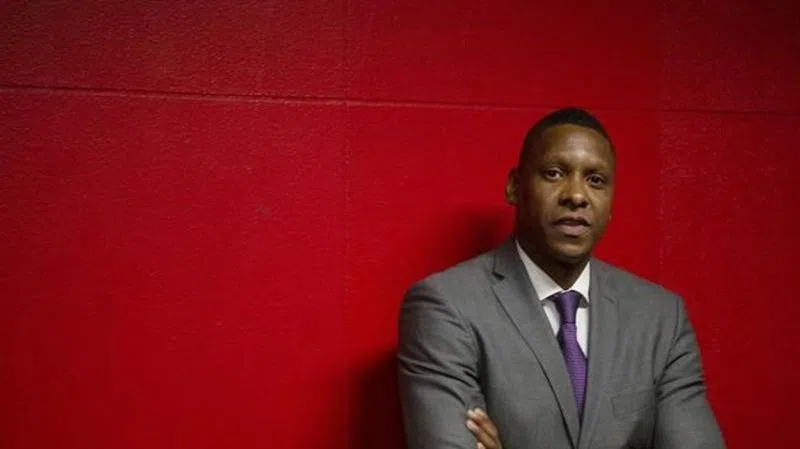
Raptors president proud to see women playing big role in team’s success
TORONTO — Masai Ujiri paused during his keynote speech in a posh Toronto hotel ballroom on Tuesday evening to ask all the female employees of the Toronto Raptors to stand.
From coaching to physiotherapy to marketing and media relations, the Raptors women — there are 14 — filled their own sizeable section of the room. They drew a loud round of applause.
When Ujiri was hired by the Toronto Raptors in 2013, the team’s female staff stopped at one: Doreen Doyle, the former manager of team services.
“We went from one to 14, and I’m damn proud of that,” the Raptors president said.
